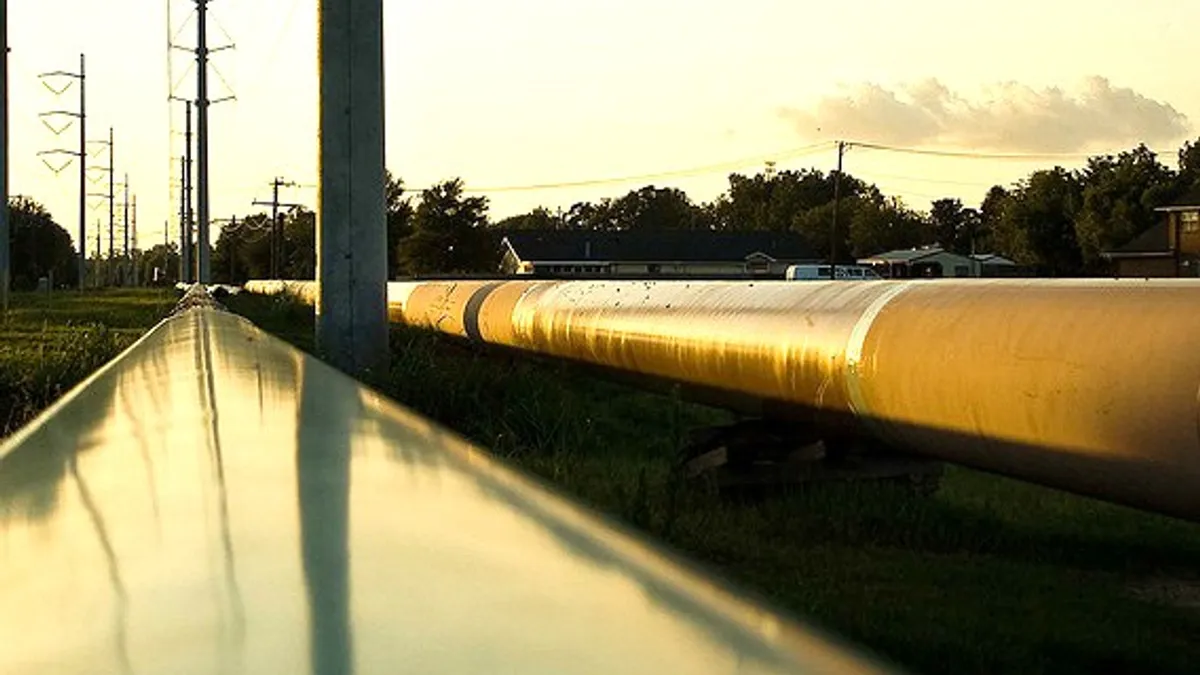Dive Brief:
- Constructing Dominion's proposed Atlantic Coast Pipeline would create some negative impacts, but those could be mitigated to allow the project to move forward, staff of the Federal Energy Regulatory Commission (FERC) concluded in a draft environmental impact statement of the project.
- The pipeline, stretching roughly 600 miles, would move gas supplies from West Virginia to North Carolina through a $5.1 billion system with a capacity of 1.5 million dekatherms/day.
- The Weirton (Ohio) Daily Times reports environmentalists believe the impacts could go beyond FERC's assessment and say the new pipeline capacity is unnecessary.
Dive Insight:
The future of the proposed Atlantic Coast Pipeline may be determined by the need for new gas capacity, but FERC staff says the project can likely move ahead with proper environmental mitigation.
According to the lengthy report, spanning more than 2,000 pages, construction of the pipeline "would result in temporary and permanent impacts on the environment, and would also result in some adverse effects." However, FERC staff also wrote that with mitigation measures "the majority of project effects, with the exception of impacts on forest vegetation, would be reduced to less-than-significant levels."
Duke Energy is also a major supporter of the project. Following its acquisition of Piedmont Natural Gas, ownership of the Atlantic Coast Pipeline had to be restructured to avoid Duke owning half the project.
While Dominion maintains the project would fill a much-needed demand for new gas capacity, environmentalists disagree. Greg Buppert, senior attorney for the Southern Environmental Law Center, told The Weirton Daily Times that the project “will not only irreparably alter our natural terrain but it is also unnecessary... [t]his is a Dominion self-enrichment project, not a public necessity."
The pipeline has faced stiff opposition in southern Virginia, forcing Dominion Energy to locate an alternative route earlier this year. Concerns over the impact to the land without tangible benefits for landowners in the pipeline's path had fueled the opposition.
Those concerns manifested in a report SELC issued last year concluding the Atlantic Coast Pipeline was unnecessary and that "natural gas supply capacity exceeds peak demand."















